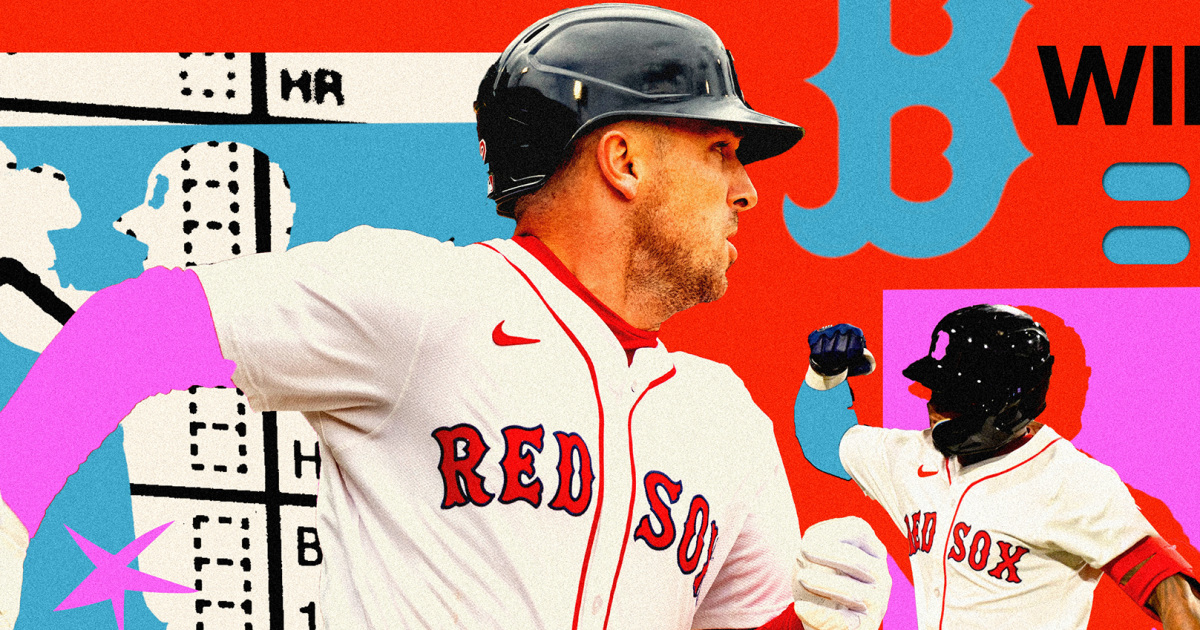The Boston Red Sox’s recent turnaround has sparked debate among fans. Following the trade of All-Star Rafael Devers to the San Francisco Giants, the team experienced a surge in wins. This unexpected success, however, hasn’t fully appeased a fanbase concerned about the team’s long-term strategy and ownership’s priorities. Is this just a temporary upswing, or is there a deeper issue at play?
This article delves into the complexities surrounding the Red Sox’s decision to trade Devers, the subsequent fan reaction, and the broader implications for the team’s future. We’ll examine the financial aspects, compare Boston’s approach to other high-revenue teams, and consider whether the team is truly committed to winning.
We’ll explore the sentiments of Red Sox Nation, the echoes of past player departures like Mookie Betts, and the question of whether ownership is prioritizing profits over fielding a competitive team. Additionally, we’ll look at opinions from baseball analysts and former executives.
The Rafael Devers Trade: A Turning Point?
In June, the Red Sox traded Rafael Devers to the Giants, raising eyebrows among fans. Devers, an All-Star third baseman, was only in the second year of a 10-year, $315 million extension. The trade signaled a potential shift in the team’s direction, leaving fans questioning the motives behind the deal.
At the time of the trade, the Red Sox held a 37-36 record, partly due to reported friction with Devers. He allegedly felt slighted by the team’s decision to move him from third base to designated hitter. Attempts to shift him to first base further fueled the tension. The Red Sox have gone 18-13 since the trade.
The trade ignited a discussion about the team’s long-term vision. While the team’s performance improved, many fans remained unconvinced, viewing the move as a cost-cutting measure rather than a strategic decision to enhance the team’s competitiveness.
Fan Reaction: Déjà Vu with Mookie Betts
For many Red Sox fans, the Devers trade evoked memories of Mookie Betts’ departure in 2020. Betts, an MVP-caliber player, was traded to the Los Angeles Dodgers after contract negotiations stalled. The Dodgers have since won two World Series with Betts. Fans worry about the money the ownership has and how that money is not being used for players that could improve the team.
Fans expressed concern that the team was prioritizing financial considerations over retaining key players. This sentiment highlights the tension between ownership’s financial decisions and the desire for a winning team.
“You traded away your best player, your highest-paid player, for what I’m calling Big League Chew and a bag of balls,” NBC Sports Boston analyst said.
Broader Issues: Payroll vs. Revenue
The Red Sox’s financial situation adds another layer to the debate. Boston ranked sixth among MLB teams in revenue last season, generating $514 million. The team’s operating income reached $120 million, indicating financial strength.
Despite this, the Red Sox’s payroll ranks only 13th in MLB. Boston’s 2025 payroll is estimated to be between 33% and 37% of its 2024 revenue. In contrast, the New York Mets are projected to spend 74% of their 2024 revenue on payroll.
This disparity raises questions about the Red Sox’s financial priorities. Are they maximizing their resources to field a competitive team, or are they prioritizing profits over player acquisitions?
Analyst Opinions: Patience or Cause for Concern?
Former Miami Marlins president David Samson urged patience, emphasizing the ownership’s track record of success. He argued that the Red Sox have demonstrated a willingness to spend when the time is right.
“They have shown when it’s time to spend, they’ll spend,” Samson said. “They’ve also shown that they’re smart. I just don’t understand how they don’t get the benefit of the doubt.”
Schur conceded that “the cold, hard economic calculations are not always necessarily a bad thing.”
Team Performance: A Closer Look
While the Red Sox’s record improved after the Devers trade, Schur cautioned against drawing definitive conclusions. He cited an easier schedule and the limited sample size as factors to consider.
Schur said that there could have been justifiable baseball reasons for the Red Sox to trade Devers, who ranked 83rd in defensive wins above replacement among AL third basemen in 2024.
As for the mild success of the team since it traded Devers, Schur is level-headed, pointing to an easier schedule and the small sample size.
Conclusion: Navigating the Road Ahead
The Red Sox’s decision to trade Rafael Devers has ignited a complex debate among fans and analysts. While the team’s improved performance offers a glimmer of hope, concerns linger about the team’s long-term strategy and ownership’s priorities. The team is in a position to allocate money to players that can improve the team.
The memories of Mookie Betts’ departure continue to weigh on fans, raising questions about the team’s commitment to retaining homegrown talent. The disparity between revenue and payroll further fuels the discussion, prompting scrutiny of the team’s financial decisions.
As the season progresses, the Red Sox face the challenge of balancing financial considerations with the pursuit of a winning team. The ownership must address fan concerns and demonstrate a commitment to building a sustainable contender. The future of the franchise depends on it.

Leave a Reply